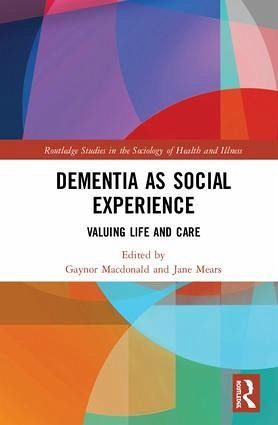
Dementia as Social Experience
Valuing Life and Care
Herausgeber: Macdonald, Gaynor; Mears, Jane
Versandkostenfrei!
Versandfertig in 1-2 Wochen
167,99 €
inkl. MwSt.
Weitere Ausgaben:

PAYBACK Punkte
84 °P sammeln!
This innovative volume draws on a range of interdisciplinary perspectives and the voices of people living with dementia to foreground the social dimensions of the dementia experience. The first part critiques the stigmas, the language and fears often associated with a diagnosis of dementia, with the intent of improving quality of care. The second part focuses on the social changes required to live a good life with dementia, discussing issues such as advanced care planning, decision-making and person-centred care. Engaging in a critical conversation around personhood and social value, this book...
This innovative volume draws on a range of interdisciplinary perspectives and the voices of people living with dementia to foreground the social dimensions of the dementia experience. The first part critiques the stigmas, the language and fears often associated with a diagnosis of dementia, with the intent of improving quality of care. The second part focuses on the social changes required to live a good life with dementia, discussing issues such as advanced care planning, decision-making and person-centred care. Engaging in a critical conversation around personhood and social value, this book is an vital read for all those practising, studying or researching dementia, wellbeing and health.













